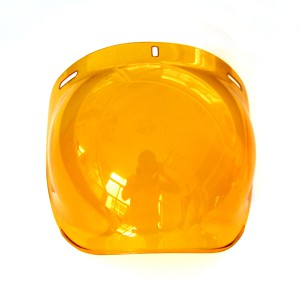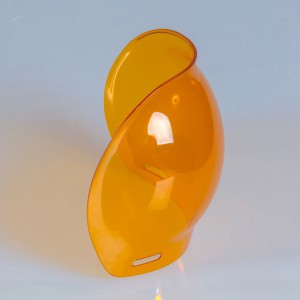Actually, while "polarized lenses block about 50% of the light wave" is true for randomly polarized light, where light is glancing off of a flat surface - such as water or maybe a windshield (and apparently tarmac) - good polarizers can block much closer to 100% of this reflected glare because when it was relected it also became partially polarized. With my sunglasses I've seen harsh glare off of a windshield reduced to a purple spot while the rest of the car and surrounding looked just fine (as though through unpolarized sunglasses).
Also, LCD displays look weird through those glasses, because an LCD always does its job via tricks with light polarization. Sometimes the LCDs are unreadable if you wear polar. glasses.
For fishing, there is enough randomly polarized light coming off the fish and the bottom of the lake that it passes through 50% dimmer just fine while the glare off the surface of the water is probably being reduced by more like 95% (or more) ...so what's the big deal 'cause everything's just getting dimmer? well, while the fish gets dimmer by 1/2 the glare is probably down 1/20 (or less) and so the fish is actually 10x (or more) clearer (i.e. - higher contrast).
for one, you're trying to get information about the flat surface itself (and not that thing underneath...) and then you need to figure out - is the road ahead dark because the polarizers are doing their job and soaking up glare *or* because the road surface itself is soaking up light (as black tar does...)? Yes, you can tilt your head back and forth and deduce some things; but at a brisk pace on a twisty road that's a lot more tilting/analysis which I prefer not to deal with. And 'sides, ain't no fish there to eat anyway.
Send your message to us:
Post time: Nov-08-2018


